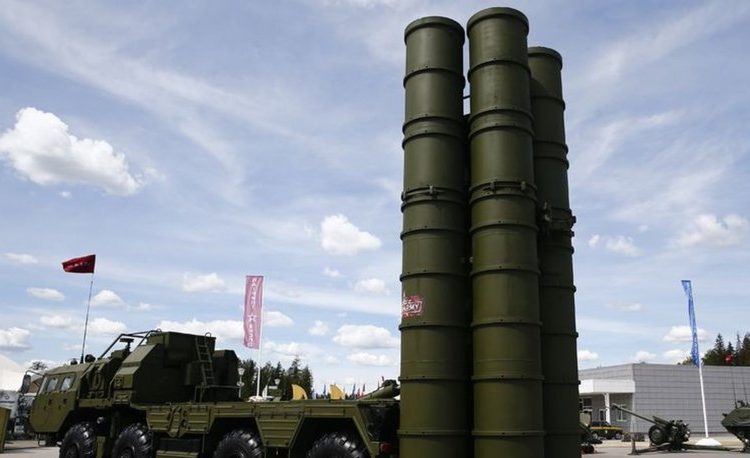Levent Kenez/Stockholm
A report published by the Foundation for Political, Economic and Social Research (SETA), the government-funded propaganda think tank of Turkey’s ruling party, states that the diplomatic and military balance between Greece and Turkey has deteriorated to the disadvantage of Turkey and that it would be best for Ankara to abandon the purchase of a second batch of S-400 missiles from Russia in order to strike a delicate balance in bilateral relations.
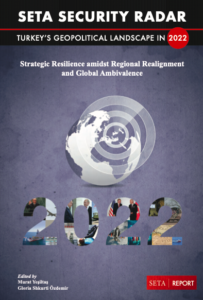 The report, which also indicates that SETA has given up its previous populist views, is an indirect admission of the mistakes made by the government of President Recep Tayyip Erdoğan in its foreign policy choices.
The report, which also indicates that SETA has given up its previous populist views, is an indirect admission of the mistakes made by the government of President Recep Tayyip Erdoğan in its foreign policy choices.
Titled “SETA Security Radar-Turkey’s Geopolitical Landscape in 2022,” the report contains expectations and forecasts for 2022 in Turkish foreign and defense policy, extensively covering Greek-Turkish relations and seeing Greece as the fifth biggest threat to Turkey.
According to SETA experts, Greece has found a comfortable area for diplomacy, and the anti-Turkey lobbies in the United States have grown stronger as a result of sanctions imposed by the US on Ankara due to the S-400 missiles that Turkey purchased from Russia in 2017.
The report also mentions that Turkey’s removal from the prestigious F-35 Joint Strike Fighter Program, the uncertainty surrounding the purchase of new F-16 Block 70/72 fighter aircraft and the inability to modernize its aging F-16 fleet have caused Greece, which has invested heavily in its air force, to gain air superiority
“Greece has launched a comprehensive military modernization program for which it purchased 18 French advanced Rafale fighters with an additional six aircraft. … While French Rafales are technologically superior to even modernized F-16s, the possible delivery of F-35s to Greece will create a significant capability gap between Greece and Turkey in terms of airpower, favoring the former. Considering Greece’s special investments in its air force, a strategic act intended to compel Turkey to back down in air dominance, air force modernization has emerged as a major operational exigency for Turkey,” the report says.
Similarly, Mesut Hakkı Caşın, the Turkish president’s advisor on security and foreign policy, also admitted in December that the balance of power between Turkey and Greece had changed after the provision of Western military assistance to Athens, adding that the Turkish military’s job has become more difficult.
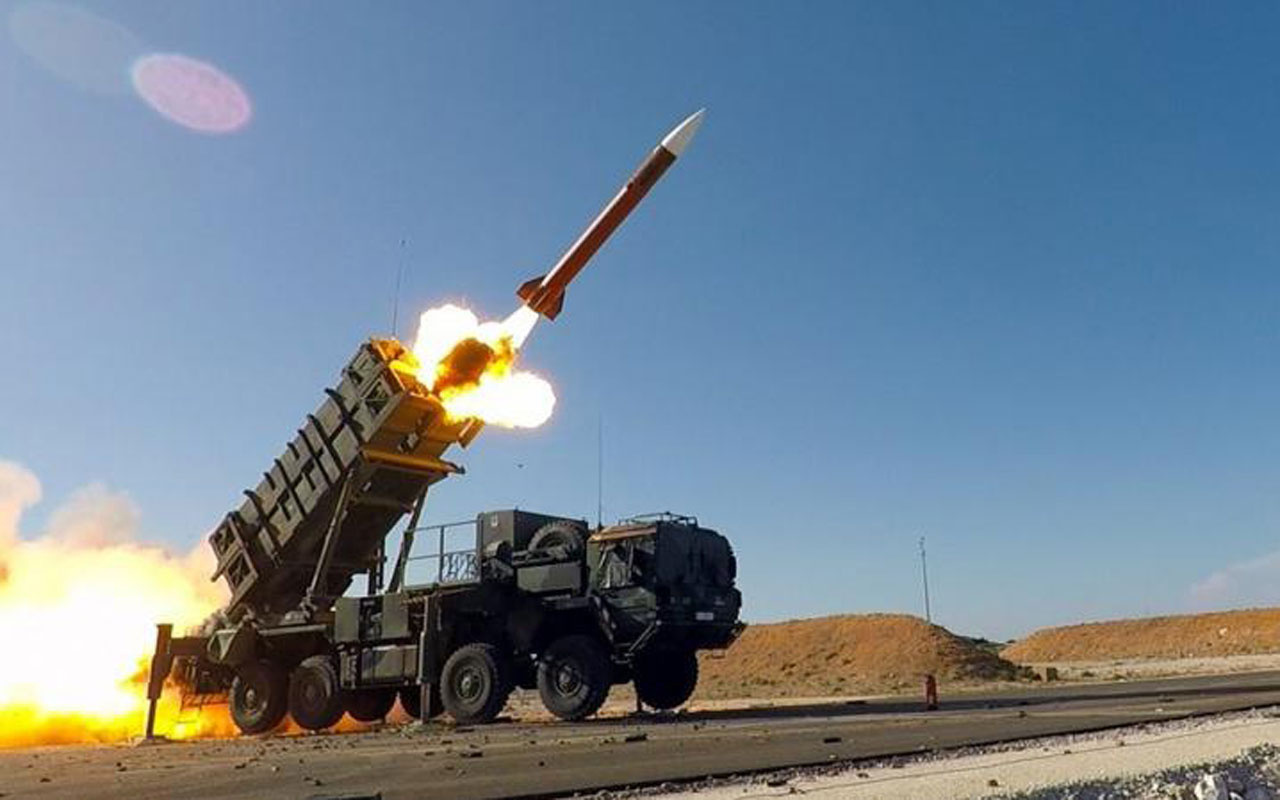
Turkey’s removal from the F-35 program was a serious blow to the Turkish Air Force. Nordic Monitor previously reported that according to a one-page white paper submitted to parliament by the Erdoğan government in 2007 to explain the reasoning behind joining the F-35 program, Turkey’s F-4s and F-16 Block-30 fighter jets would become obsolete by 2010 in terms of their technological capabilities and the cost of their operation.
Arguing that Greece has been pushing an increasingly aggressive foreign policy with the help of its air superiority in the Aegean and eastern Mediterranean, the report states that Turkey needs to rebalance its airpower, recommending purchasing new F-16 fighter jets given the fact that it is unlikely to be included again in the F-35 program at present.
“Meeting the increasingly pressing needs of the Turkish Air Force should be a priority and as the decades-old military experience demonstrates, receiving the latest model of F-16s would be the best way to achieve that objective for Turkey,” it says.
However, it would not appear to be easy for Turkey to purchase new F-16 jets. Turkey is currently in talks with the US to purchase 40 Lockheed Martin F-16 fighter jets and nearly 80 modernization kits to upgrade its F-16 fleet. It is unknown whether the US Congress will approve Turkey’s request given the anger towards Erdoğan over many issues. Turkey should give up on the S-400 missiles and not purchase a second batch, which would be a first step towards breaking the resistance of the US administration and Congress. Although the report does not explicitly state this, most probably not to anger the Turkish government, it indirectly emphasizes that these conditions must be met.
The report also evaluates the possibility of Turkey purchasing a second batch of S-400 missiles as low, predicting that Russia will put pressure on Turkey.
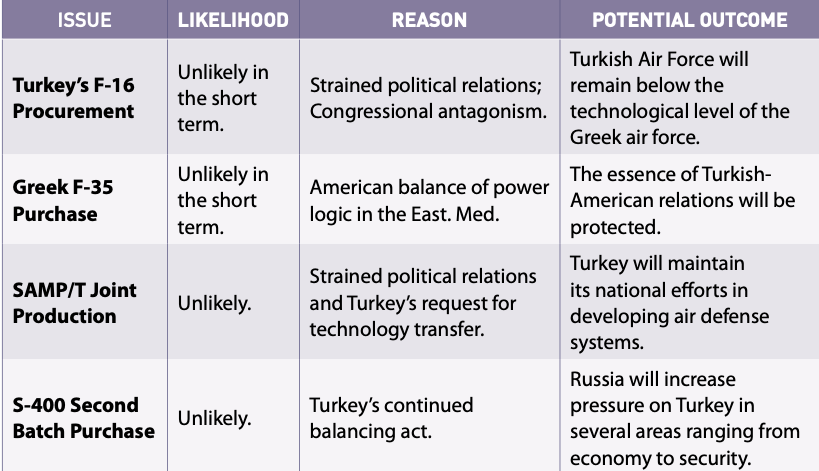
According to pro-government think tank SETA’s predictions, it does not seem possible for Turkey to buy new F-16 jets in the near future.
The SETA experts also argue that if Turkey switched to the French-Italian ASTER 30 missile defense system and abandoned the S-400s, it could significantly alter perceptions, adding that the tripartite cooperation among France, Italy and Turkey in the defense sector dates back to 2017, when Turkey signed a declaration of intent with both countries for the joint production of air and missile defense systems. However, the process was halted because of the political stance of France and Italy toward Turkey in light of developments in Libya, Syria, the eastern Mediterranean and Nagorno-Karabakh.
“In the negative shadow of the ongoing Russian S-400 missile defense system issue, the tripartite defense cooperation would re-strengthen Turkey’s political relations with the major European countries. Since, on one hand, Turkey is keen to enhance its missile defense system; on the other hand, with France and Italy signaling interest in developing relations with Turkey in the defense sector, the possible tripartite cooperation seems to be a good opportunity for the parties to normalize and even further the relations,” according to the report.
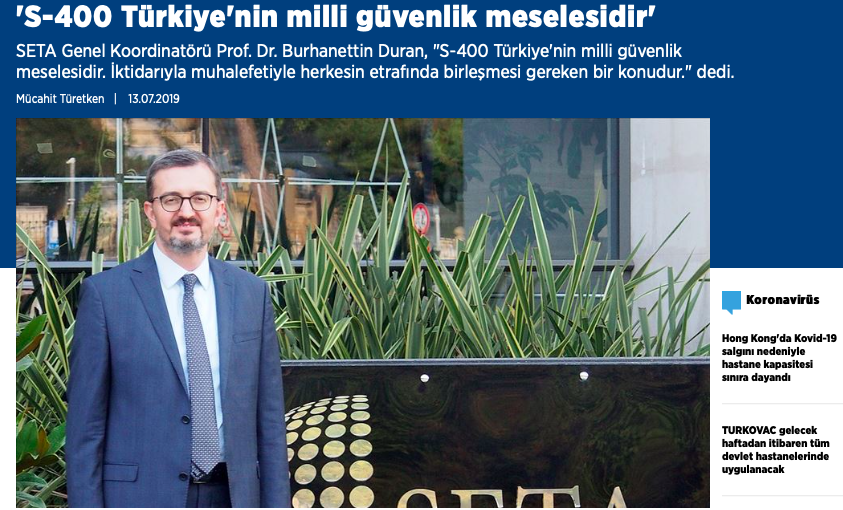
The analysis in SETA’s report that the purchase of S-400 missiles is not in Turkey’s interest also points to an interesting reversal.
In 2019 SETA General Coordinator Burhanettin Duran, a fanatical supporter of the government, pointed out that the S-400 project was a matter of national security for Turkey, harshly criticizing its opponents. According to Duran, the purchase of the S-400 defense system would strengthen Turkey’s hand in the eastern Mediterranean, and he called for opposition parties to support the project. It seems that even SETA, the propaganda tool of the Erdoğan government, thinks that Erdoğan’s choice is wrong at this point in time.

